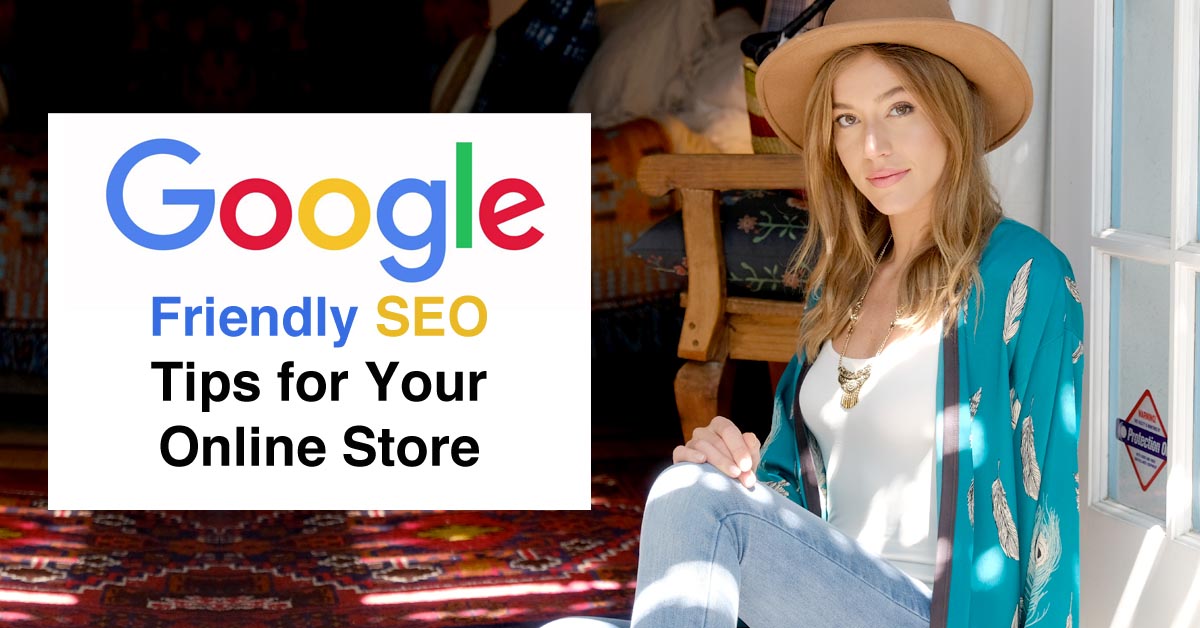Ecommerce SEO Tricks
The first step in getting people to buy from your website is getting people to visit your website. As you’re building your online store, think about SEO. What is SEO, you ask? Let’s define it. SEO, which stands for Search Engine Optimization, is the process of using keywords to receive free, organic traffic to your website. Organic traffic simply means that you didn’t pay for an ad to show up at the top of a search engine. People just found and clicked on your website because it showed up on the first few pages of search results.
Search engines, like Google, Yahoo and Bing have search results, where websites show up and are ranked based on what the search engine’s algorithm deems relevant to the user. According to Statista, 1.17 billion people use Google Search when surfing the web. If you’d like to know what Google recommends in order to get your online boutique to show up higher on their rankings, follow Google’s guidelines for webmasters.
In the meantime, here are 2 tips for increasing your search engine optimization as you first start out:
1. Research relevant keywords and phrases
Each online industry has their own set of relevant keywords that customers search for. Whether it’s real estate agents looking to grow their business with “real estate lead generation,” moviegoers Googling “Avengers: Infinity War” to find local showtimes or Americans looking up “royal wedding” to stream Meghan Markle and Prince Harry’s big day, certain keywords and phrases are more popular than others. Research what keywords are popular for your industry!
However, you always want to be wary and not duplicate content. Google’s complicated algorithm frowns upon repeat content and will give you a poor ranking, lessening your likelihood of getting traffic. Keep product descriptions, category blurbs, home page content and about-us pages fresh with unique copy. If you’re interested in reading more about what’s currently trending for Google searches, visit their Google Trends top charts.
2. Create keyword-filled URLs and metadata
Now that you know which keywords and phrases are relevant to your specific online business, let’s talk about URLs. Avoid using a string of meaningless numbers, even when creating each product page. Your online stop is perused by humans, so why not make your URLs readable and informative? Your home page, category pages and specific product pages should ideally all have their own unique URL that means something to a customer. Being a wholesale clothing retailer, the team at Wholesale Fashion Square knows how hard it is to keep every single URL clean, logical and matching with the page content. In a perfect world, a product page might look like this: www.youronlineclothingboutique.com/dresses/pink-floral-maxi.
Metadata is the blurb of text that shows up under the page title and URL on a search results page. It might seem like a no-brainer, but be sure that your metadata is unique and relevant to the page on which it lives. Google knows if you’re sneaking in random keywords in order to boost your SEO!
You want the metadata copy to be compelling, engaging and ideally anchored by an awesome call to action (CTA) that urges the reader to click. What does your online store sell? What makes you unique? Maybe you sell graphic t-shirts, your prices are at 50% of average MSRPs and you offer free shipping on any order to the USA. Tell your audience those impressive tidbits in the meta description!
Pro tip: Never use double quotation marks (these things: “) in metadata! Google cuts meta descriptions off when it sees this punctuation mark, so everything after a double quotation mark is rendered useless. There are different schools of thought on how long metadata should be. Google cuts off descriptions at about the 300- character mark, so we recommend writing and trimming descriptions to be 50-295 characters long.
How has your website been ranking on Google? Share with other business owners in the comments below!








madelyn vicioso
Great info! Thank you!!